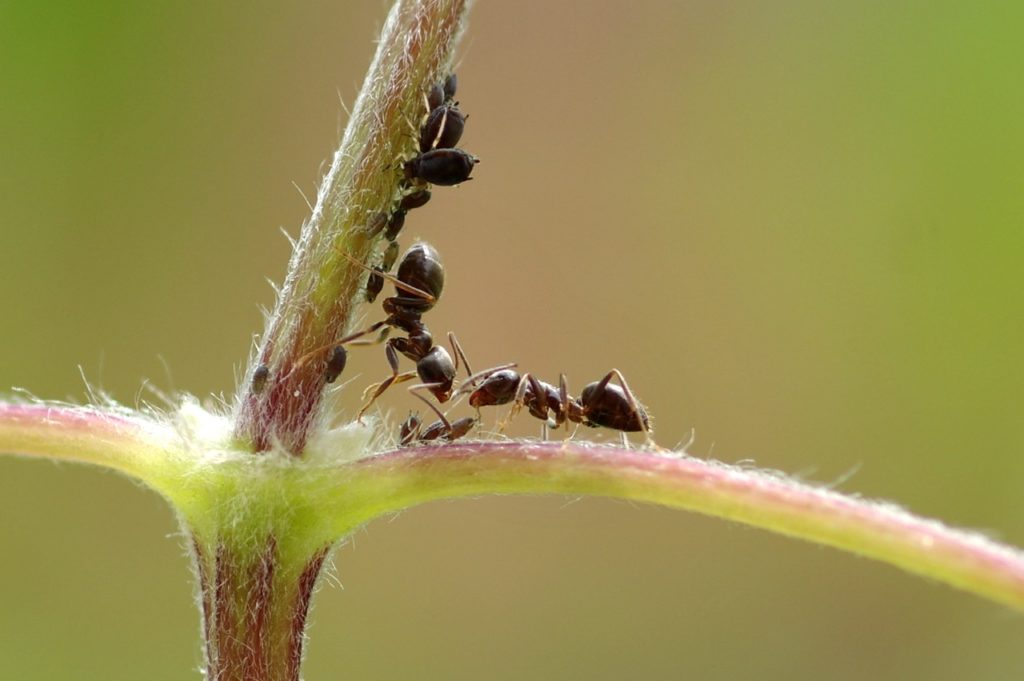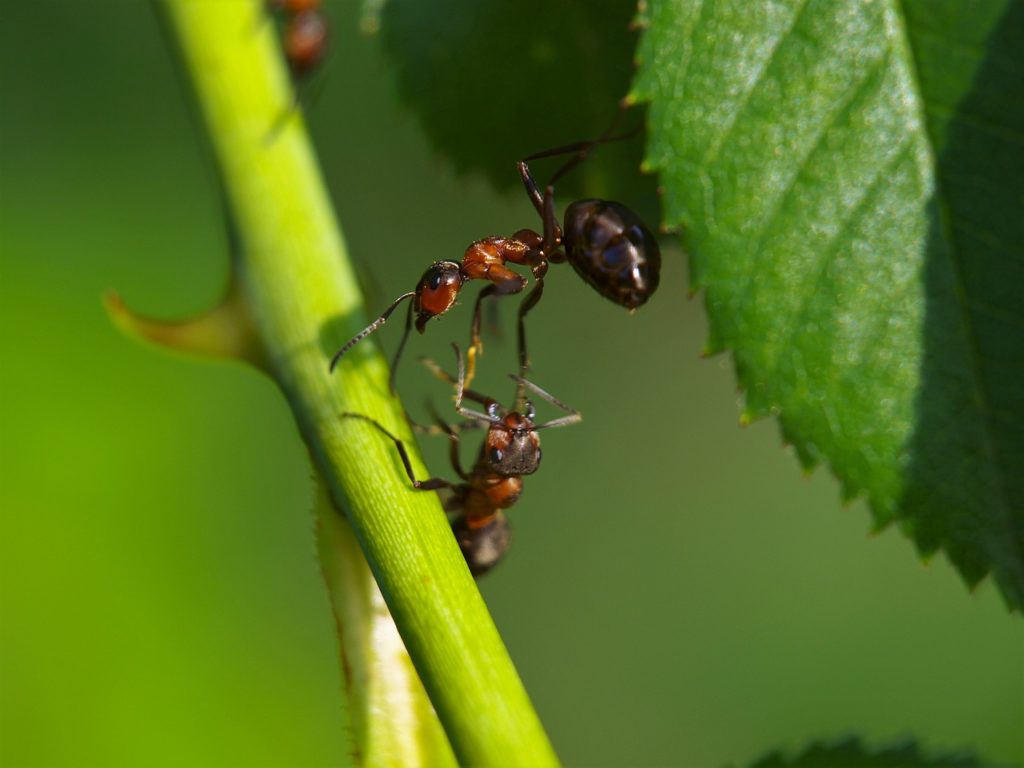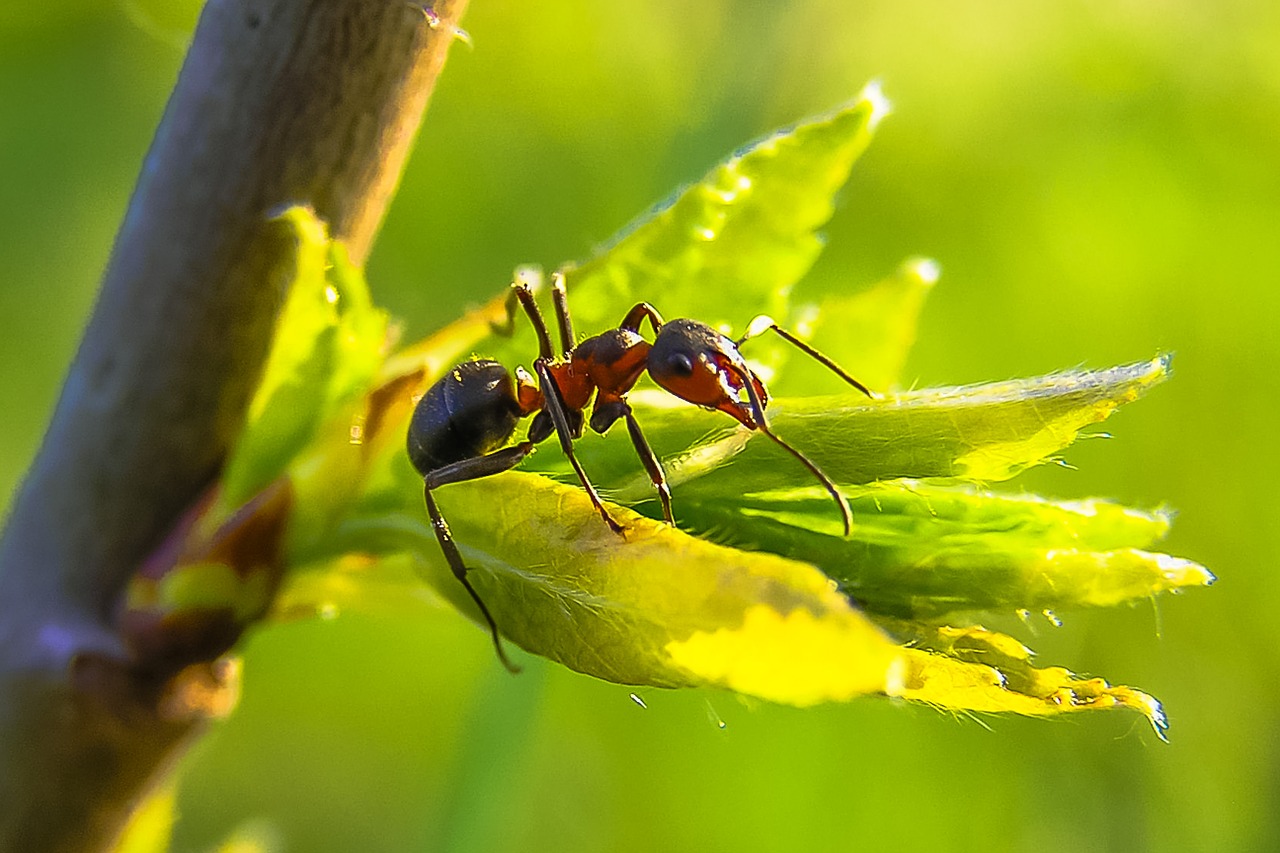If you have plants outside your home, ants can be a problem. You may see these industrious and resilient insects in clusters on your plant soils and in trails on your plant leaves. Are ants good or bad for your plants? They are both.
Here is everything you need to know about ants in plants.
Why there are ants in your plants
You may notice this inside your home – ants always show up whenever food and water are too accessible. This is just the same outside your home. They thrive because they find the resources they need.
The general reason why there are ants in your plants is that ants have found your plants as a reliable food source and shelter. But it’s more complicated than that.
You have pests near your plants
No, ants don’t actually attack your plants. Usually, the presence of ants in your plants is a sign that you have a bigger problem in your plants. They are being attacked by pests, particularly those that suck on saps.
If you follow the trail of ants in your plants and soil, you may end up seeing aphids, mealybugs, whiteflies, and other sap-sucking insects. Ants protect these pests from other predators.
In a sense, ants are your friends. They help you track these pests that are attacking your plants. But ants are also your foes because you will find them protecting these pests from other predators.
But why are ants protecting these pests?
Ants extract honeydew from your plants
When aphids, mealybugs, whiteflies, and other sap-sucking insects suck on sap, they produce honeydew, a sweet substance that sticks on your plants’ leaves and stems.
This will probably come as no surprise to you – ants love sweet substances. Basically, ants are protecting these pests so they can extract their honeydew and bring it home to their nest and queen. Consider it as payment for their protection services.
Sap-sucking insects become safe from predators while ants get a free meal. It’s an interesting symbiotic relationship as far as nature is considered. But it’s something you don’t want in your plants.
Ants take shelter at the base of your plants
Ants are part of the natural ecosystem outside your home, and they can actually be beneficial for your plants. These insects dig tunnels that end up helping plants get oxygen, water, and the nutrients they need. They also help in pollination.
But ants can be detrimental for your plants too, especially if they end up making their nest at the base of your plants. They can disturb your plants’ roots, which will prevent your plants from taking water.

How to get rid of ants in your plants
Ants and pests in your plants are not just random annoyances. They can be detrimental to the health of your plants. Honeydew can promote the development of black mold, which can stop photosynthesis and end up weakening your plants. Ant nests at the base of your plants can prevent your plants from taking water.
Get rid of the pests
If you get rid of the sap-sucking insects, there will be no honeydew to extract. And if there is no honeydew to extract, the ants will go elsewhere. So, if you want to get rid of ants in your plants, you have to get rid of the pests that help them thrive.
You can introduce “good bugs” that are natural predators to pests. Hoverflies, lacewings, ladybugs, and even spiders can be good for the outside of your home. You can also introduce plants with pest-repelling properties, such as catnip, dill, mint, and nasturtium.
Bait the ants with borax and powdered sugar
You can use ant baits to get rid of the ants. The great thing about ant baits is that they don’t just kill the worker ants looking for food and water. They also kill the ants in the nest, as the worker ants carry the toxic baits into the nest for everybody to consume.
You can buy ant baits in the market, but you can also make them yourself. Just mix borax and powdered sugar in a 1:3 ratio. Sprinkle the mixture on areas with the most ant activity.
Spray insecticide on the soil
Insecticides attack the nervous system of the ants and end up killing the insects. You can spray the insecticides on the base of your plants. They will kill ants upon contact.
Like ant baits, insecticides may have ingredients that are harmful for humans. Make sure to follow the instructions on the label. Avoid getting the ingredients in your mouth. And supervise your children and pets so they don’t accidentally consume the products.
Put diatomaceous earth on the soil
The great thing about diatomaceous earth is that it’s safe for humans, unlike ant baits and insecticides. Diatomaceous earth is made of the fossilized remains of an algae called diatom and is a proven killer of various pests, including fleas. Diatomaceous earth works by dehydrating or drying out the pests.
Simply sprinkle food-grade diatomaceous earth on areas with high ant activity and let it do its magic. But you do have to keep the area dry for the product to work at its best.
Sprinkle spices on the soil
Spices are natural ant repellents. Take note that they only repel ants, not kill them. If you think killing is too barbaric, using spices may be the method of choice for you. But because this method is not very invasive, they may not be very effective in getting rid of ants either.
Cayenne pepper, chili powder, ground cinnamon, and peppermint are some of the most effective natural ant repellents. Simply sprinkle these products on the base of your plants, preferably in a circle like a protective wall. This will prevent ants from getting near your plants.
Pour boiling water on the ant nest
If you are not comfortable using all these natural and artificial ingredients to get rid of your ant problem, there is also a very practical approach. You can just pour boiling water on the ant nest. You wouldn’t find a simpler solution.
But finding the ant nest may prove to be problematic. Ants may thrive at the base of your plants. If they don’t thrive there, you can follow ant trails.

Summary
Ants outside your home are part of an ecosystem and can actually be beneficial. But they can also be detrimental, especially if they help other pests to thrive or harm your plants.
If you think the ants outside your home are more detrimental than beneficial, consider getting rid of them. You can do this by using ant baits or insecticides. You can also go more natural by using diatomaceous earth, natural repellents like spices, and boiling water.

